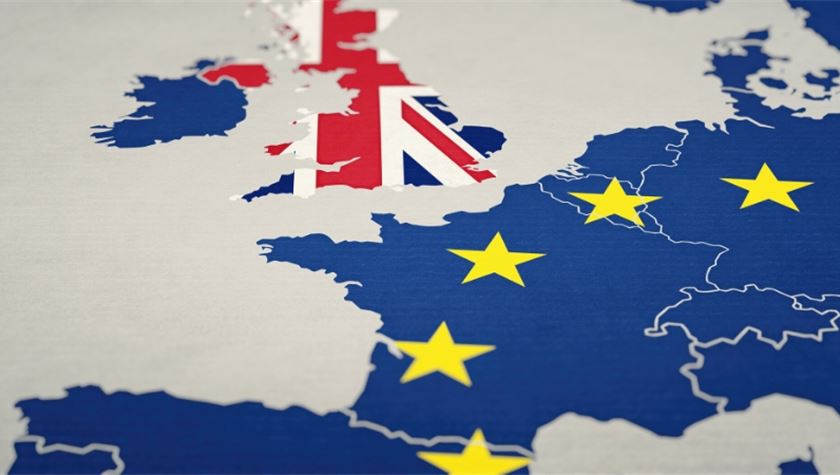By Timoleon Palaiologos,
One of the most recent and, simultaneously, important developments in the European Union has been the withdrawal of the United Kingdom from the EU by the use of Article 50 of the Lisbon Treaty. As it is stated in Article 50, paragraph 1 of the Treaty: “Any member state may decide to withdraw from the Union in accordance with its own constitutional requirements”. On the 29th of March 2017, following a referendum held in the UK on the 23rd of June 2016 regarding the country’s future within the EU, the Prime Minister of The United Kingdom of Great Britain and Northern Ireland, formally triggered Article 50 and thus the procedures for the UK’s exit. From that day onwards, negotiations with the European Union began in concern of Brexit and on January 31st 2020, after a 3-year period of negotiation, the United Kingdom left the European Union entering a transition period that lasted until the 31st of December 2020, when the UK left the European Union’s single market and customs union. During this whole period there was widespread controversy and uncertainty as to whether the UK would actually leave the Union as that had never happened before. However, through a quick look at historical facts, it is easy to see how the UK became the first ever EU member state to leave the Union.
Quick Historical Preview
The British Isles have historically been a challenging area in Europe, standing independent and strong in most occasions. It could be argued that since ancient times the Isles have passively observed the developments in the European mainland, opposing any foreign influence or oppression whatsoever. The mighty Roman Empire, a thousand years old Empire that ruled over three continents for hundreds of years, eventually gained a foothold in Britain with great sacrifices, establishing their control over the island and advancing to a certain point up to Scotland but never managing to fully subjugate the Britons. Fast forward to a couple of hundred years earlier, reaching the milestone date of 1066 when the Anglo-Saxons defeated the Norwegian Army of Harald Hardrada in Stamford Bridge succumbing at the same time to the Normans in the Battle of Hastings, there began a short-lived period of Norman control over Britain. Throughout the centuries, during the hundred years war, the Napoleonic Period and both World Wars, England (and later the whole of the UK) developed an introvertive mentality approaching their Εuropean neighbors.
But we do not need to dive further into British history as we can just observe the general UK approach to European matters after World War II. The creation of the European Coal and Steel Community in 1951 without the participation of the United Kingdom could be perceived as an omen, as to what would follow in the upcoming decades. The steady and repeated denial of the UK to approach European developments without absurd objections or at least excessive suspicion, has strayed its citizens away from the idea of one United Europe. But even when the UK joined the European Communities (that later became the European Union), their perception of Europe did not change. Stubbornly rejecting the Eurozone and the Schengen Agreement, could to some extent be considered one of the main causes of the problem. The indifferent approach of several UK cabinets has over time worsened the general relations between British and EU citizens.

The Controversial Referendum
The referendum outcome revealed an interesting reality that exists in the United Kingdom. As the name itself states the United Kingdom is a union of states, specifically England, Wales, Scotland and Northern Ireland. The particularity in this occasion is that out of the four entities in the UK, two of them -England and Wales- voted to leave the EU while the other two -Northern Ireland and Scotland- voted to remain. The relative populations of these states played a major role in the result of the referendum as the superiority of England in numbers was the factor that decided the outcome. Because of this bipolarity within UK voters, a new wave of Scottish Independence supporters appeared after the referendum creating a new set of problems in the already problematic UK political scene.
Some Personal Notes
Whilst it is true that the loss of the UK will have severe financial and cultural consequences in the further development of the European Union, it is also a really good opportunity to reconsider the way that the EU approaches its members individually. As a European citizen myself, being fully aware of the advantages provided to me by the EU and respecting the European dream, I cannot but agree to certain points of the Euroscepticism movement. As it stands now, the EU has on its own created and maintained two “classes” of European countries/citizens. The unity of the EU is also endangered by that situation as the citizens of the Southern EU member states blame their Northern counterparts for their financial instability and the citizens of the Northern members view the citizens of the Southern member states as lazy workers wasting EU funding. Exceptions of course are always present, but, at least in my opinion, this is the general crisis that troubles the EU internally. This phenomenon gradually produces great uncertainty concerning the continuation of what is now known as the European Union, and if a collective attempt to alter this vicious cycle is not made, other member states will follow the example of the UK and leave the European Union as well.
References
House of Commons Library, Brexit Timeline: Events Leading To The UK’S Exit From The European Union. [online] Available here.
Eur-lex.europa.eu. [online] Available here.
BBC News, EU Referendum Results. [online] Available here.
Duetsche Welle, Brexit Sparks Renewed Calls For Scottish Independence | DW | 30.01.2020. [online] DW.COM. Available here.
Historic UK, The Norman Conquest Of England. [online] Available here.
Historic UK,The Battle Of Stamford Bridge, 1066. [online] Available here.
Assets.publishing.service.gov.uk. 2021. [online] Available here.




